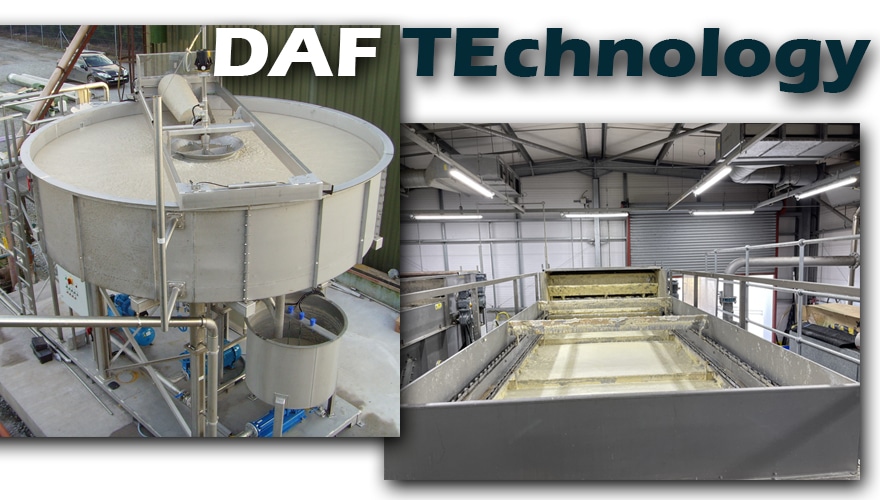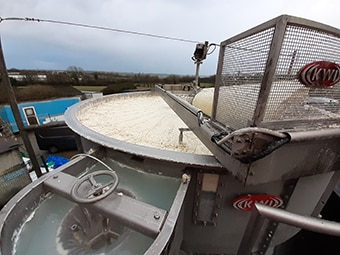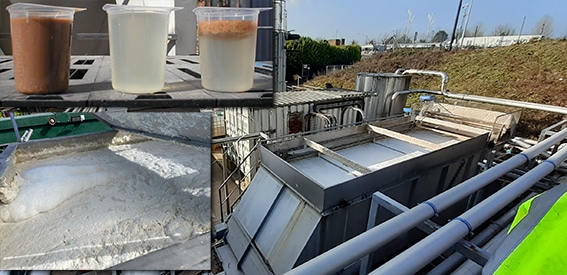How DAF Technology is Making a Difference

Dissolved Air Flotation (DAF) technology is gaining momentum in the dairy industry, where there is mounting pressure to improve environmental performance. The dairy industry, like other industries in New Zealand, generates large volumes of wastewater that can have a considerable negative impact on the environment if not treated properly.
Wastewater generated during dairy processing operations can contain substantial amounts of organic milk products and minerals, and cleaning plant can result in caustic wastewater.
JIPL partners with KWI Group, a renowned global provider of water and wastewater treatment technologies, to offer cost-effective and sustainable solutions to its customers.
The KWI Group is considered one of the pioneers of Dissolved Air Flotation (DAF) technology and is one of the oldest existing DAF unit manufacturers in the world.
Different effluent requires different technology for effective treatment, and the KWI Group offers a diverse range of solutions to meet every customer’s unique requirements. As one of the pioneers of Dissolved Air Flotation (DAF) technology, KWI offers 11 standard DAF models and custom designs, making it the global leader in DAF solutions.
To address the issue of contaminants in wastewater, KWI (UK) Ltd has developed the Supracell, an effective solution for a variety of contaminants. Initially designed for use in the pulp and paper industry, the Supracell has since been adapted for use in other sectors, including the dairy industry.
The compact size of the Supracell makes it ideal for sites where space is at a premium, and KWI (UK) Ltd recognized that many customers prefer an “off the shelf” solution to their effluent treatment problems. To meet this demand, the Supracell is now available as a skid-mounted unit supplied completely pre-wired and tested and can be unloaded and operational with minimum site installation work. Its success is evident in the case of Express Dairies, which reduced its effluent discharge costs by approximately £44,325 annually and achieved a payback for the complete project in less than two years by installing a skid-mounted SPC 8 Supracell.
Another example of DAF success is Glanbia cheeses in Anglesey, which uses a KWI minicell to remove phosphates and reduce COD from its mozzarella production facilities. Effluent from the customer’s sump is pumped over a rotary screen installed by KWI UK Ltd and into an existing aerated balancing tank. From here, it is pumped to a constant flow headbox integral with MNC skid and gravity fed to the DAF. Clarified water is discharged directly to the sewer with the option to return to the balance tank if out of specification. DAF sludge discharges into a small transfer tank, and from here, it is pumped on a level control to a 25m3 decant tank where further thickening takes place.
Muller Market which produces yoghurt uses a Megacell MCH30. The plant was installed to treat biological sludge and primary effluent without chemicals. Muller is now running the MCH 30 continuously due to considerable power savings achieved by reducing the COD load before the biological plant which allows reduced aeration.
JIPL and KWI Group work together to provide environmentally sustainable and cost-effective wastewater treatment solutions to customers, delivering effective wastewater treatment that meets regulatory requirements while minimizing costs.
DAF technology is a proven solution for the dairy industry to enhance its environmental performance and minimize the negative impact of wastewater on the environment. Let JIPL and KWI work with you during these challenging times to make your project a success!


